Primal Powers
Hurricanes, Environmental Degradation, and the Old Gods
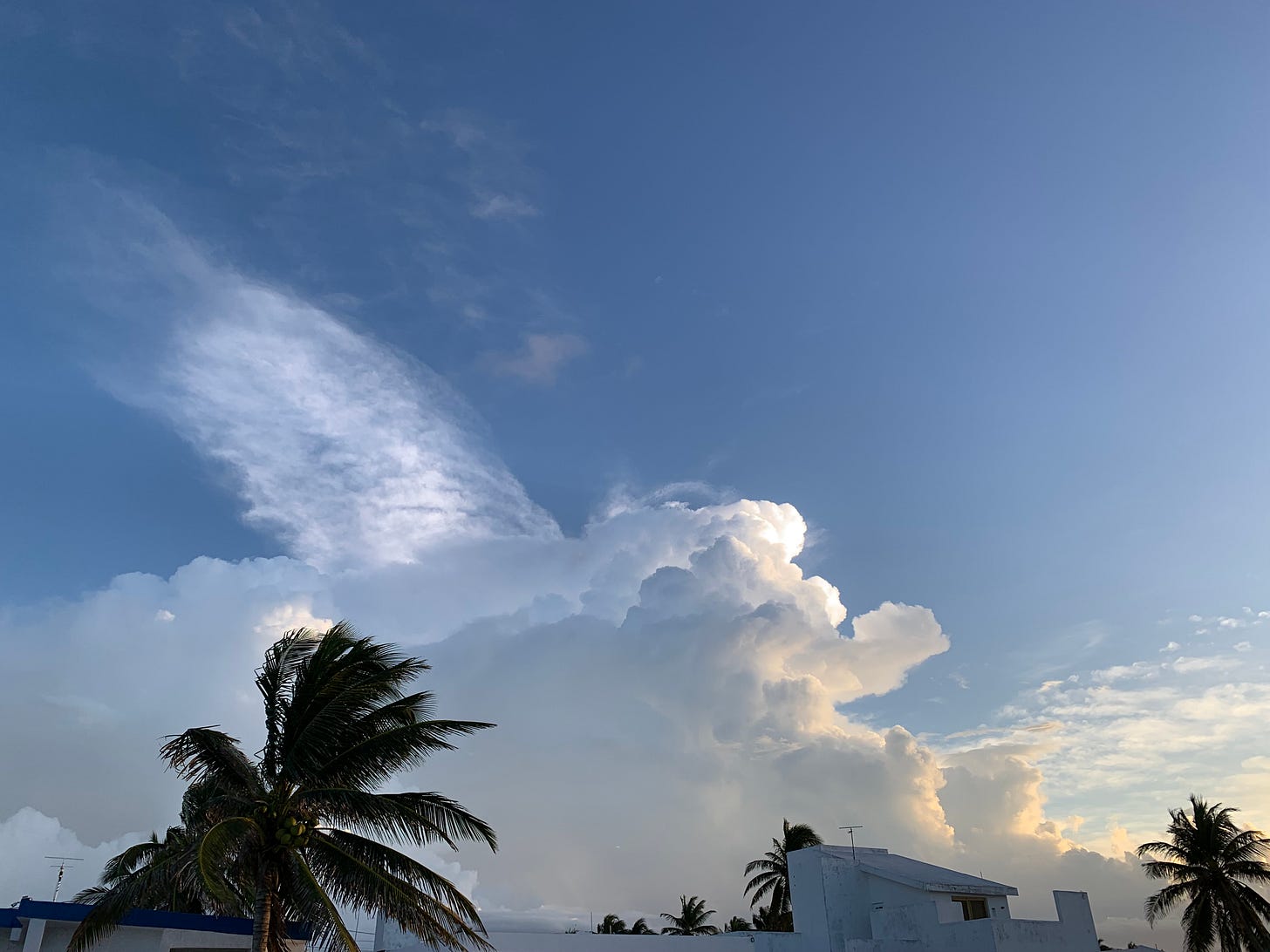
Note to readers: I first published this post a year ago while on vacation to the Yucatán peninsula. We are planning to return there when our agricultural season is over in a few short weeks, in order to revisit some of the awe inspiring archeological sites and experience the vibrant culture of the region. I hope to get a post written while there, but here’s the first of two posts I wrote about last year’s trip. It was a very different year, as no major hurricanes have menaced the region. Hopefully that remains true for the rest of the season.
Chelem and Tixpehual, Estado de Yucatán , México, October 6-7, 2024
I have always been puzzled by the theological conundrum of unde malum, “whence evil”, or the enduring problem of the existence of evil in the universe, (including natural evil, like hurricanes) and have endeavored to understand it, at least to my satisfaction. It is the quest to solve this problem that has led me to reject notions of a single personal creator god as hopelessly inadequate. If there is a “being” responsible for creating some of the truly awful and unjust things in the world, then that being is either not able to create a Cosmos without this level of suffering, and is not omnipotent, and is simply a limited being, a god among gods.
My evolving view, sees the Divine as wholeness itself, a transcendent source which emanates being and life into the universe at all times. However, in the elemental realm in which we live, the ways of the gods are inscrutable to mortal beings. The forces of nature they represent are implacable. Human beings are as ephemeral as insects before the mighty forces of flood and fire, fate and history. When the gods of time and the elements move we must yield to their superior power or be swept away. There is no other way.
Two weeks ago our land, like most of the Ohio Valley and much of the Southeastern United States, was baking under a prolonged drought. Crops and pastures were withering, the woods and meadows were a tinderbox just waiting for a spark. And the rain associated with Hurricane Helene came in abundance just in time to save the land from the consequences of extreme drought. However, our blessing was the curse of those several hundred miles to the south in western North Carolina and East Tennessee, where unprecedented devastation resulted from the torrential rains.
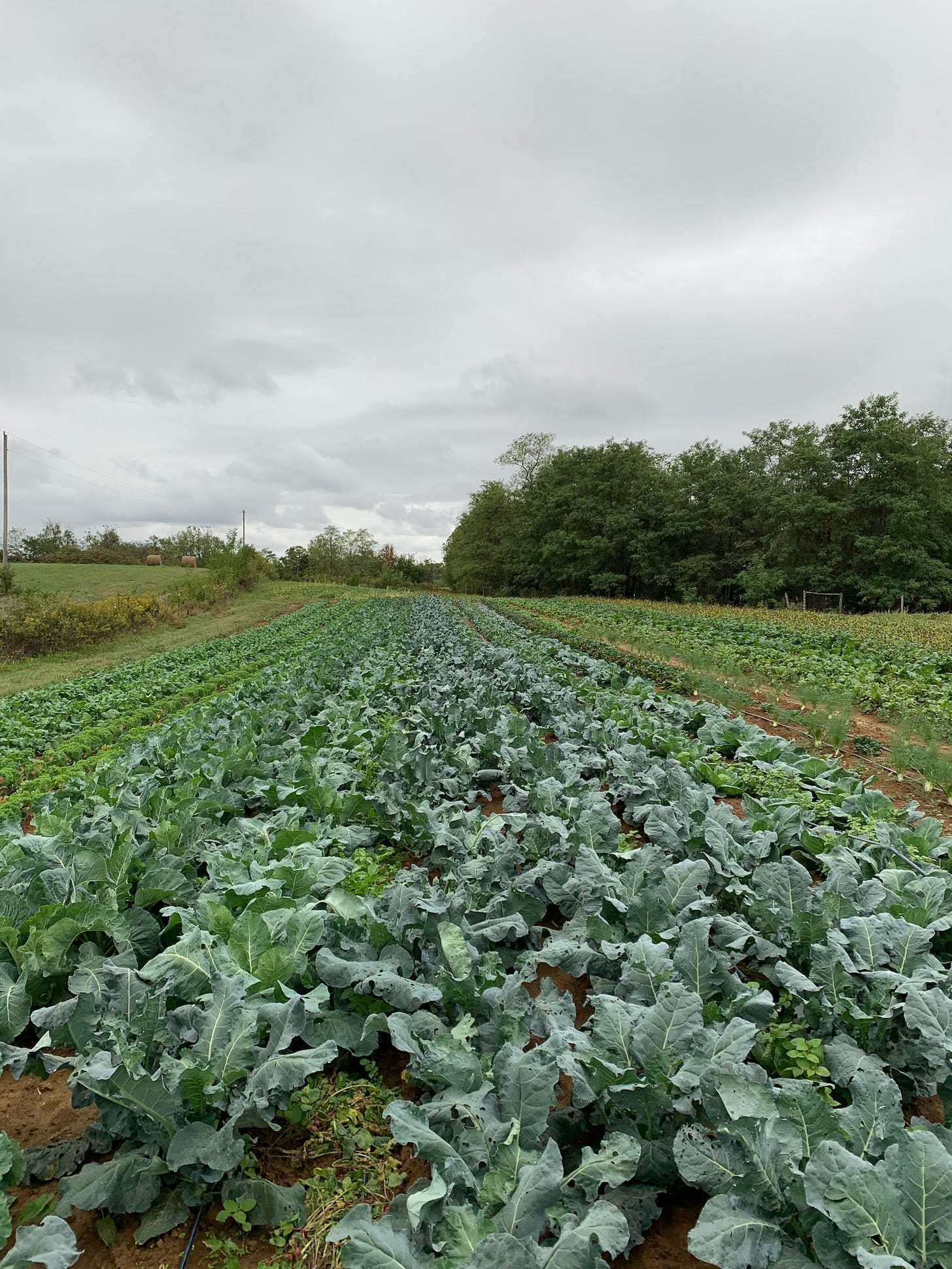
I confess I felt a certain amount of survivor's guilt as I gratefully surveyed my newly green pastures and well watered vegetable fields. My prayers were answered and many of my southern neighbors' homes were wiped off the map and hundreds of lives were lost. But in my mind a nagging question remains: Why me, and why them?
What kind of god designs a world like this? This is exactly the kind of theological mystery that I have been pondering throughout my life. There is obviously inherent intelligence fundamental to the universe and a deep spiritual connection in which all things participate, but it is not human. It is written in the sacred scriptures that God is love, but in what sense? When we say that “God loves you” what exactly does that mean? Does this god love the people suffocating under a pile of mud in a landslide or the children bombed by the IDF in Lebanon? This question is meaningless from a dualistic point of view. What good is it to be loved by a god who doesn’t help those who suffer? Yes, miracles absolutely do happen and sometimes prayers are answered, magic happens, and God is love, but this God is not a person in the usual sense of the word. God is the fundamental unitive conscious energy of the universe and human beings are ephemeral whirls of this same fundamental energy, nothing more or less. Personhood, whether divine or human, is an illusion, or a temporary metaphor. And it is as limited beings that we suffer. This god of which we speak has never promised to save you in this life, as a person. It is in the realization of the illusion of separation that saves. Because we are god, God suffers with us, is with us in disasters and distress, as a source of power we can draw on, a healing battery of love that can recharge our flagging spirits.
In daily life, for the most part, however, we deal with the distinctly less lofty elemental and astral entities that shape our fate in the physical and archetypal realms. So we fall under the sway of the varying fortunes of the material world where anything can happen. The world we live in and our physical lives are mostly under the power of the Old Gods, such as the superhuman forces of the weather, and most unfortunately, those gods who work their will by using human beings as their agents, such as greed, war, and the other dark forces which lurk in the human soul. Acknowledging the reality of these forces and their trans-personal nature is essential if one is to be able to look the spiritual predicament in which we find ourselves square in the face.
Currently, I am vacationing with my family in the Yucatan Peninsula in Mexico, and have been immersing myself for several months in an in-depth study of the indigenous Mesoamerican worldview, specifically the Mayan version of which seems to be in harmony in many ways with my own personal understanding of the sort of cosmos in which we live. In the broad generalities the Mayan conception of the cosmos is animistic, all aspects of the world are alive and possess agency and consciousness on some level. In common with many Western esoteric systems, including the medieval magical tradition preserved in texts such as the Heptameron, as well as Western astrology, time is governed by archetypal forces which give it its qualities. The Mayan calendar is a system of sophisticated mathematical precision, still used in some regions to select auspicious times for divination, for timing ritual observances as well as to govern the all important work of planting and tending the sacred maize crop upon which human life depends.
Reading the K’iche Maya epic of creation, the Popol Vuh, I was intrigued to learn that this ancient people, living as they do in a part of the world which is frequently ravaged by hurricanes, do not consider such events aberrations in the course of nature, but rather one of the fundamental forces of the cosmos. Indeed, Hurricane (Jurucan) is one of the creator gods, along with his emanations, Newborn Thunderbolt and Sudden Thunderbolt, a trinity of primal storm gods. They first created the Earth, and then all of the animals, and the first human beings from logs of wood as in the Norse creation myth. But these humans were deficient, lacking souls, and so the gods destroyed them, enlisting Hurricane to bring an epic storm and ensuing cataclysmic flood.
The reason for the destruction of the wooden proto-humans is that although they could reason, speak, and reproduce themselves, they failed to honor the gods, keep the calendar and celebrate the festivals. In the story, Hurricane first sends the storms to destroy the wooden men, followed by wild animals and monsters who eat the hapless proto-humans, and finally their own household tools, their cooking pots and tortilla grinders rose up against them. Dennis Tedlock’s evocative translation gives the following account of the catastrophic fall of this earlier race of humans:
“They were pounded down to the bones and tendons, smashed and
pulverized even to the bones. Their faces were smashed because they
were incompetent before their mother and their father, the Heart of Sky,
named Hurricane. The earth was blackened because of this; the black
rainstorm began, rain all day and rain all night. Into their houses came
the animals, small and great. Their faces were crushed by things of wood
and stone. Everything spoke: their water jars, their tortilla griddles, their
plates, their cooking pots, their dogs, their grinding stones, each and
every thing crushed their faces. Their dogs and turkeys told them:
‘You caused us pain, you ate us, but now it is you whom we shall eat’”
The only remnants of this prototypical race of human beings are the human-like monkeys of the forest. To my mind, the fact that in this story primates are the descendants of an earlier branch of humans, accords nicely with the modern scientific understanding.
After a long section describing the heroic struggles of the many gods of the K’iche pantheon, the narrative resumes the story of the creation of human beings, the ancestors of the K’iche, who are made from corn dough, chocolate, fruits and other staple foods who keep the rites and the calendar, and thus live in right relation with the gods. And for this the gods allow them to live.
As for us, as a culture, collectively speaking, we have fallen out of right relation with the gods and the powers of nature, and so we live out of balance, treating Mother Earth as a resource to be exploited. We have mined her for ore, stripped her of her forests, extracted from deep within the rocks, harmful substances that would be better left buried. The list of our sins against nature is too long to detail here, but our fundamental deviation begins with irreverence, we don’t keep the calendar or perform the rites, and hence we live as if we were the masters of creation. Until, that is, Mother Earth and the other ancient powers of fire, flood, storm, drought, wind and lightning shows us they are ,the true powers.
To the Maya, creation is incomplete without ritual. As Alexus McLeod states in Philosophy of the Ancient Maya, Lords of Time:
“The gods mention the need for humans to express or speak in order to manifest the activity and objects of the gods in the world. In the first part of the Popol Vuh, the gods undertake various attempts to create beings who can properly speak, perform the rituals, and keep the days… ‘May we be called upon, and may we be remembered. For it is with words that we are sustained’…The gods say here that they are sustained with words. The ritual actions of humans play a role in the continual creation of the cosmos. The gods create the patterns and the original stuff of the world, which is then molded, manifested, and sustained by humanity.”
Mc Leod continues, “the Maya position seems to have been one in which ritual and texts were seen as organizing a preexistent world based on patterns themselves contained in that world. That is, the role of humans is to use ritual, which shows us the patterns inherent in the world, to help enact these patterns properly. The world cannot complete its harmonious patterns on its own, but requires the intermediation of humans and its structuring through the enactment of ritual. This position, as I (says McLeod) show below, is not unique to the ancient Maya (though their specific version of it may be)—rather, this is a position that can be found, explicitly or implicitly, in most human systems of thought. Without going so far as to say that it can be found in every global philosophical tradition, it can be found so widely that perhaps we could say that it comes close to being part of a ‘perennial philosophy’”.
This is a conception of a humanity which is at home in the universe, a necessary part endowed with a cosmic function: to set the world in order with ritual and what we would today call magic. The world and the forces which govern it on an occult level are intelligences with whom one must retain good relations. In contrast to the modern worldview in which natural systems are seen as a network of biological machines which have value only as far as they are useful to humankind, this view gives to humans the task of mediating between the gods and the world to maintain harmony between the two.
We have lost our role as sacred caretakers of the created order, and are orphans within our own world. And now nature, despoiled and enraged, turns against us. Droughts, wildfires, tornadoes, hail and hurricanes, mass extinctions violence between nations, desperation and despair are characteristic of our world age. Meanwhile, we sit staring at our own tiny little screens entertained by the media and our sham politics where we decide which criminals get the privilege of oppressing us.
The historical culture of the Maya intrigues me because even though much has been lost to five centuries of oppression and genocide by the dominant culture, there is still much that our disenchanted culture can learn from this nation of humble corn farmers and shamans who try to live in harmony with cosmic rhythms and the spirits of place. That speaks to me as I also am a farmer who tries to do the same, cobbling together a practice from the shattered remains of the esoteric traditions bequeathed to me by my Western heritage, picking through the pile of remnants to find ways to relate to the spirits of place and time in order to get back in right relation with the land I call home and the cosmos which all living things share.
As I write these words, I am situated near the very spot, the town of Chicxulub, where the meteor impact that destroyed the dinosaurs 66 million years ago took place, an example of the very type of event which the Popol Vuh describes, a cataclysm in which the gods destroyed an earlier experiment of creation, ending the great age during which reptiles ruled the earth, and paving the way for the rise of human beings. Coincidentally, the Mayan vegisimal system of arithmetic was easily capable of calculating precise dates that far in the past. They even had a unit of time, the alautun, the largest named cycle of time, corresponding to 23,040,000,000 days or 63,123,288 years, which is remarkably close to the time of the Chicxulub meteor impact. Mayan inscriptions refer to dates 90 million years and even 400 million years in the past. An inscription at the archaeological site at Coba in the Mexican state of Quintana Roo shows 15 cycles above the alautun, each of which increases by a factor of 20. Only two factors of 20 above the alautun are needed to reach a period of time greater than the physical age of the universe as calculated by modern science. ( Ronald Wright, Time Among the Maya, p.73)
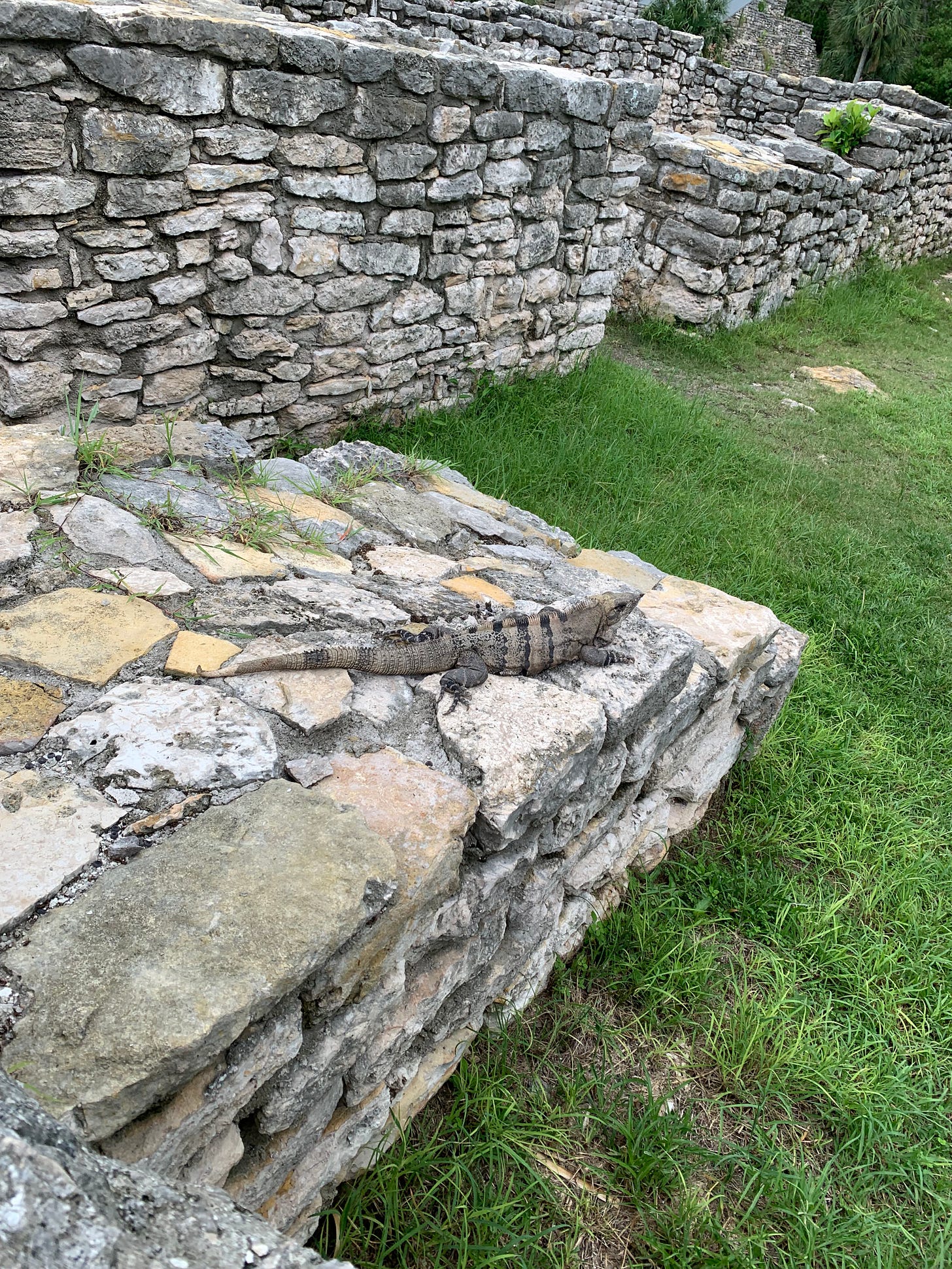
Cosmic cataclysms are common to many world mythologies, the Maya being no exception. The flood story in the Bible, in which Yahweh is displeased with his own human experiment and resolves to put an end to it, except for one righteous family is very similar. But coupled with the geological history of the Mayan region and the advanced mathematics which place the beginning of the largest named cosmic cycle to very close to the end of the Age of Dinosaurs, I wonder if the shamans of the Maya accessed the memory of the place, gaining spiritual insight into the unfolding of events on a geological scale. It also strikes me as interesting that the primary creator is the Plumed Serpent, a feathered reptile, as were the dinosaurs.
As I continue this writing the following day, my family and I, as well as millions of citizens of Northern Yucatan, as well as the state of Florida are again in the path of the Old God, Huracán in his latest incarnation as Hurricane Milton. We left the beach town of Chelem and headed inland to the Mayan pueblo of Tixpehual, a bit further inland, for safety. Milton intensified from a tropical storm to a category 5 hurricane in record time, and bore down on the very coast where we were enjoying a welcome break from an extremely difficult farming season. The rapid intensification of both Helene and Milton has apparently fueled rumors in the States that the government has been experimenting with weather modification technology for a variety of nefarious reasons. I have my own conspiracy theory: put simply, the environment is far out of balance and the ancient gods of nature are angry with us and are taking matters into their own hands. Expect more of the same.
When the land, desperate for rain, calls the water, the water will answer, and in these times of imbalance and impiety the answer may just be a mighty hurricane.


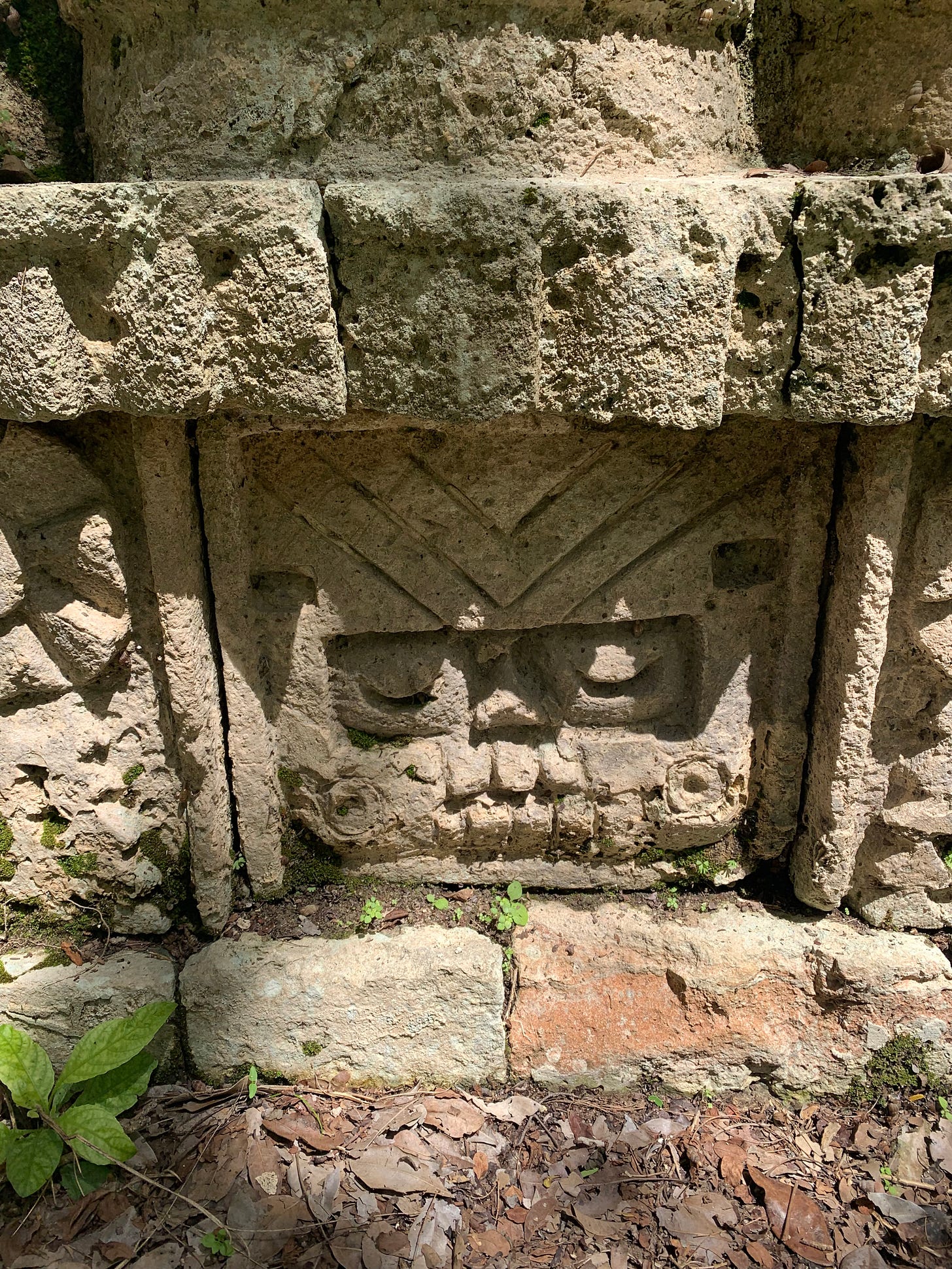
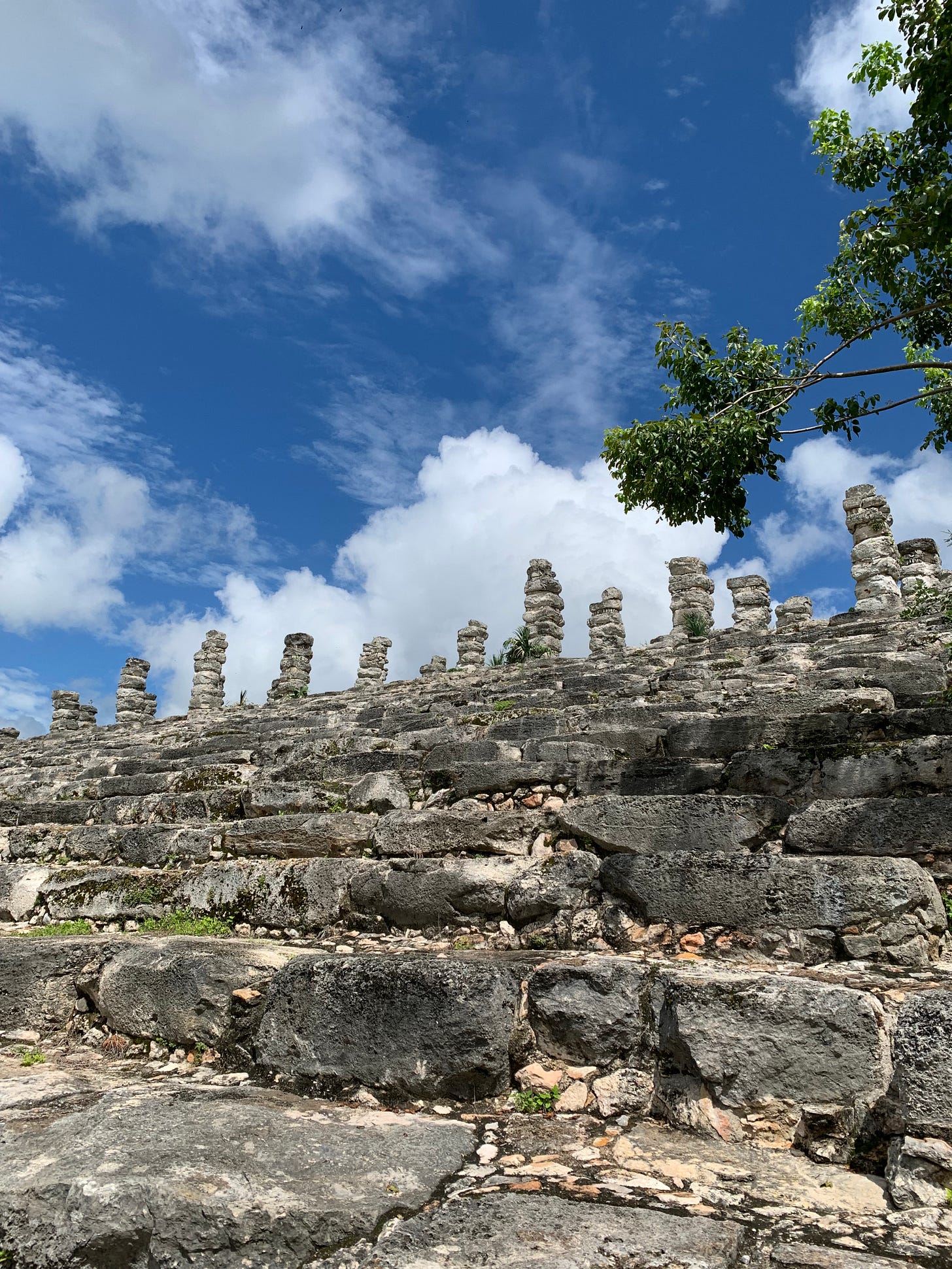

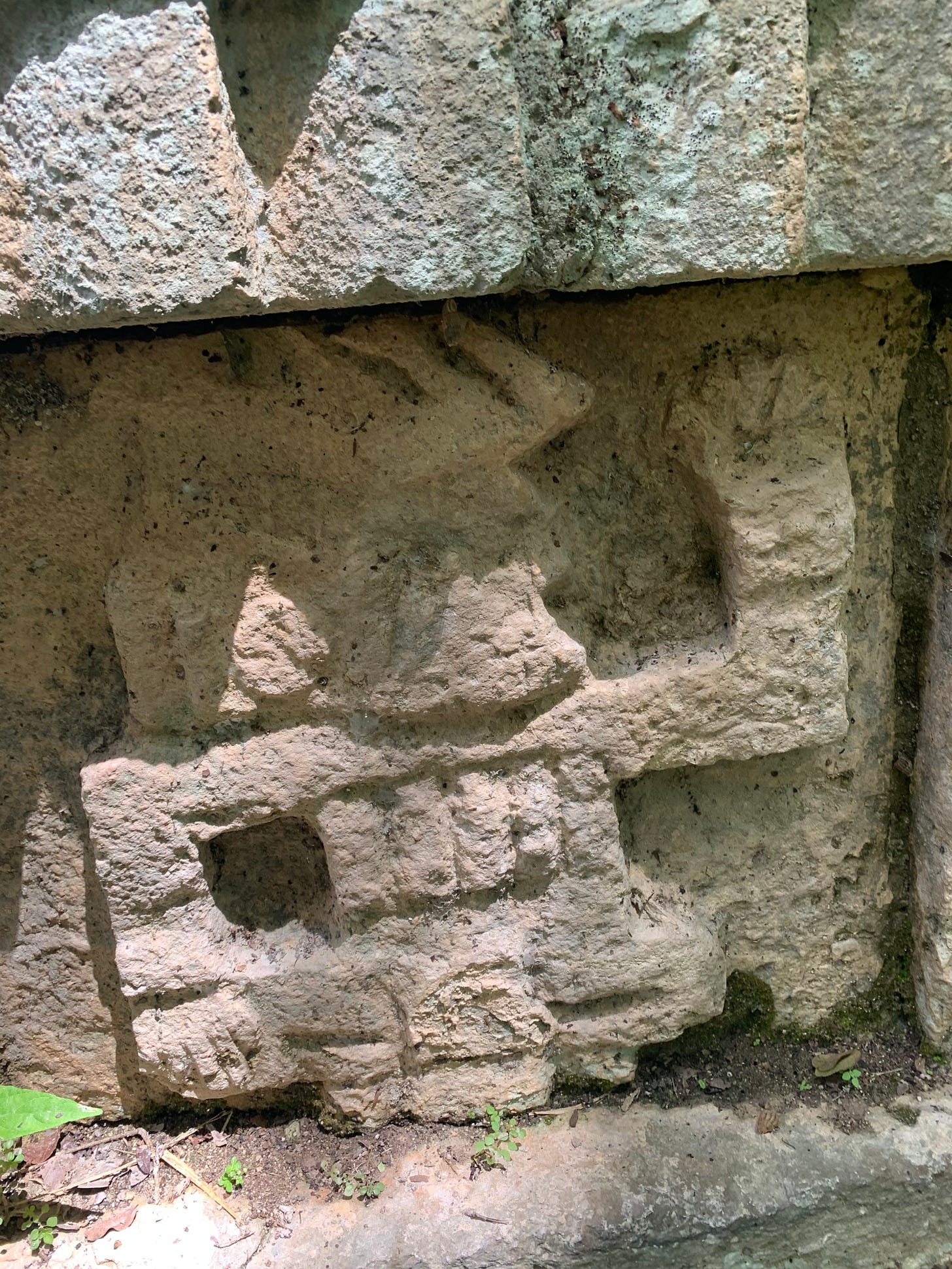
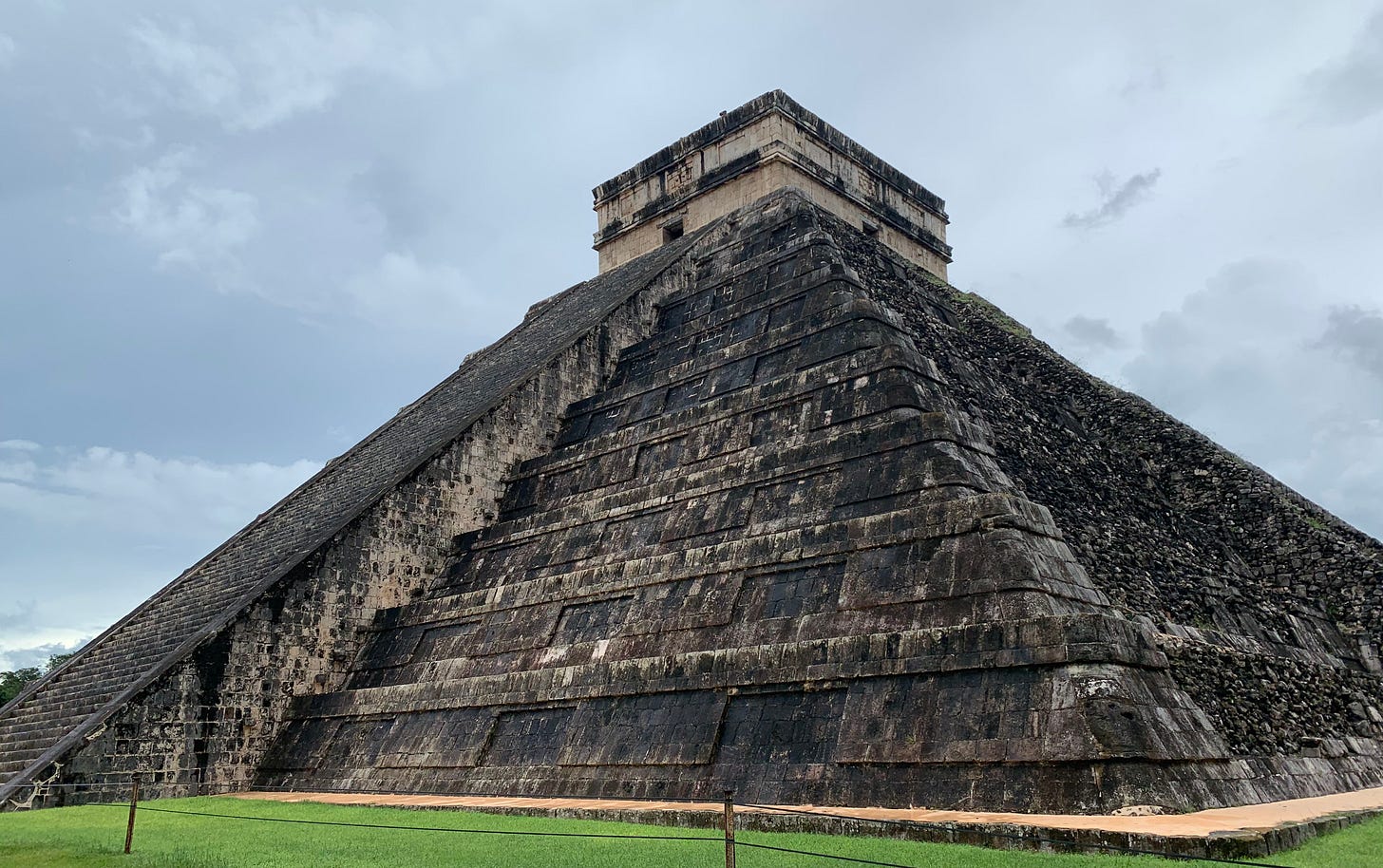
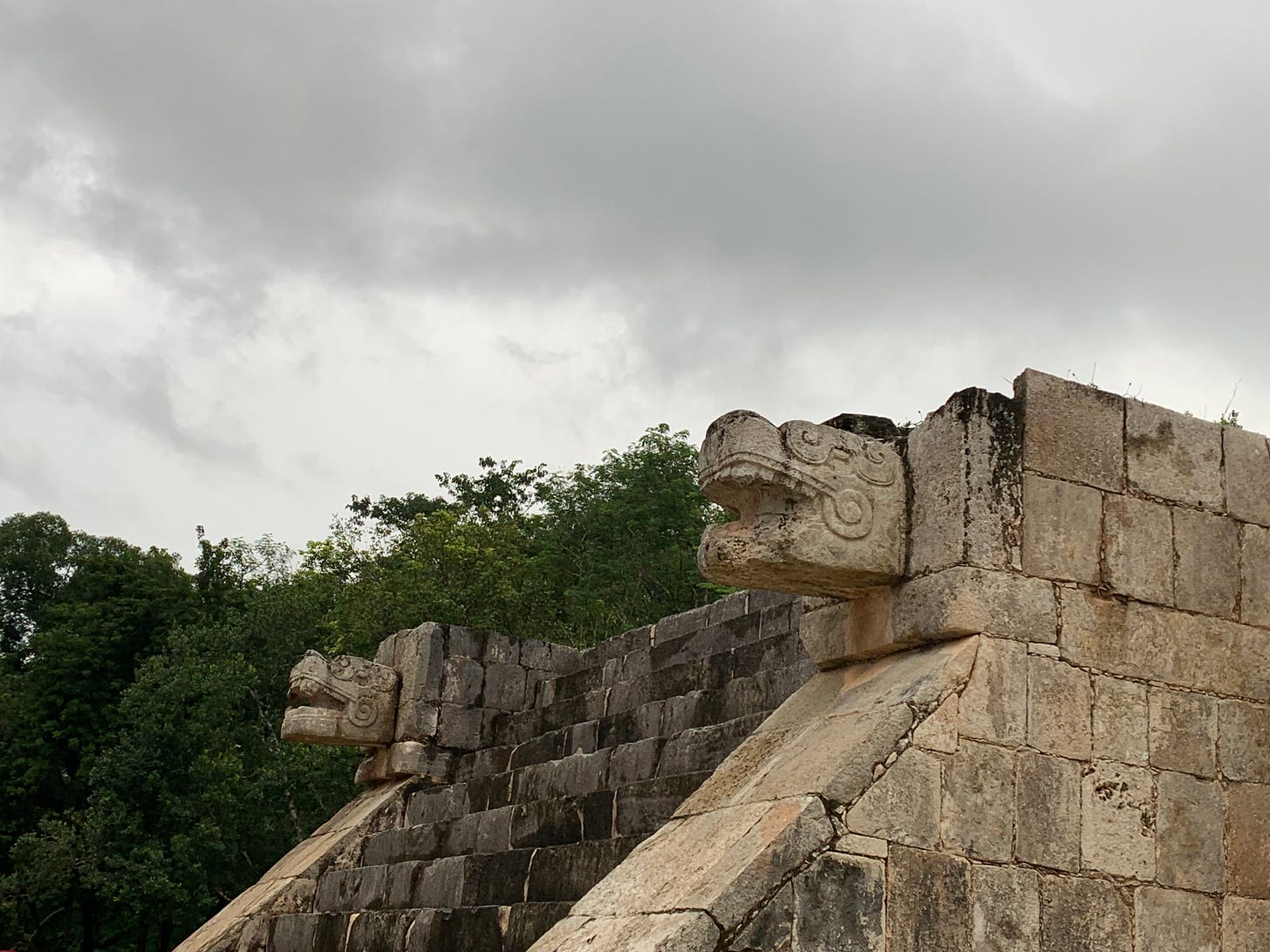
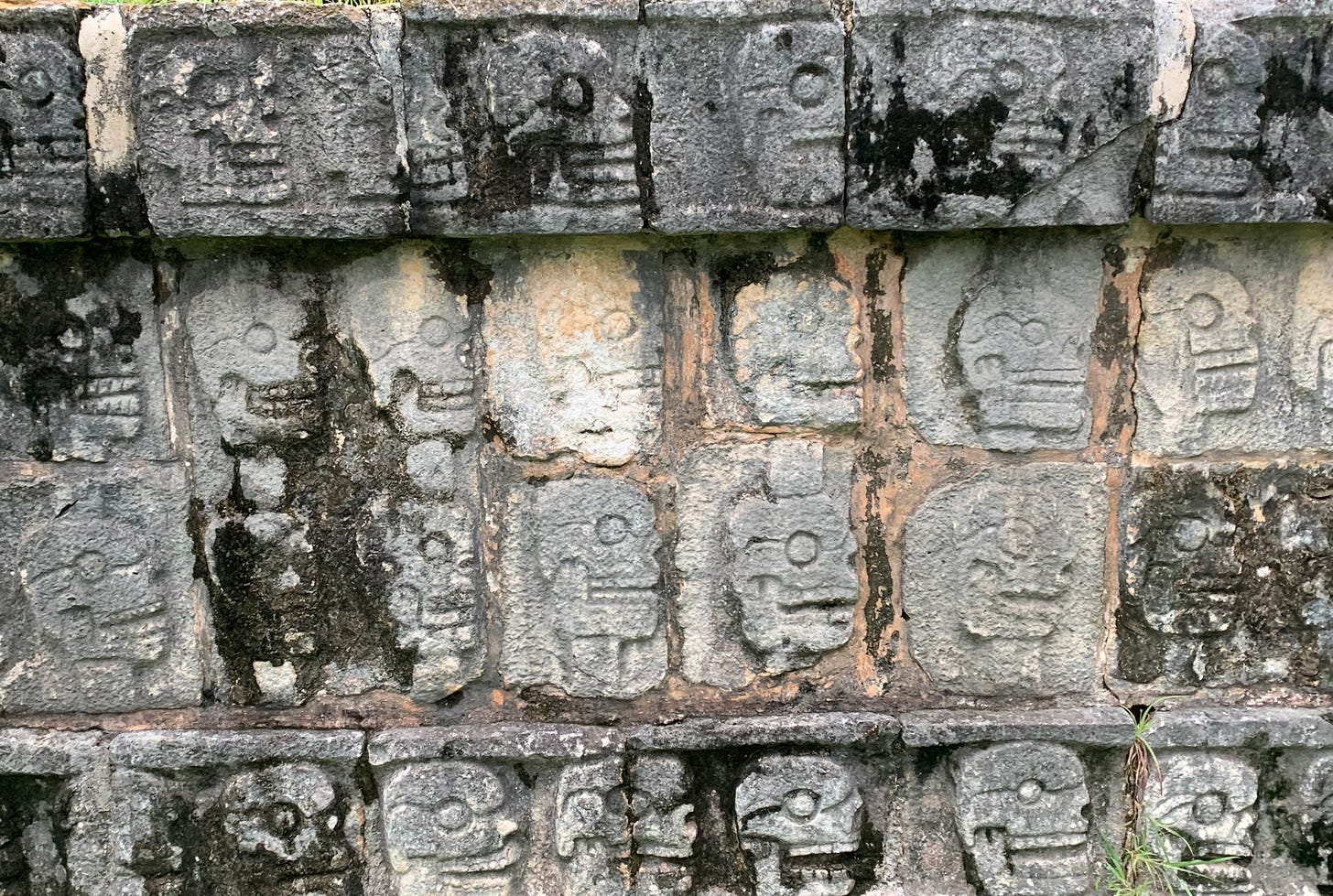
A great read. Reminds me of Gordon white, rune soup.
There’s a lot to absorb in those last paragraphs, could you do further separate essays on these ? Thanks 🙏 x
wonderful as always and so important in these harrowing times. Do you recommend any books on the Mayan philosophy (or religion/animism)?